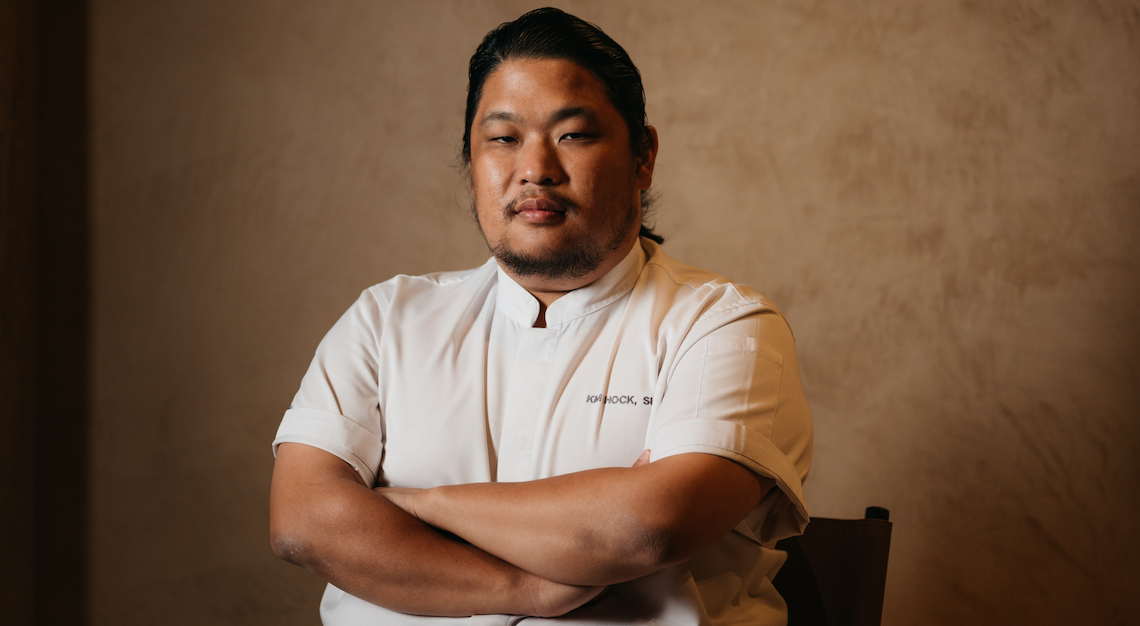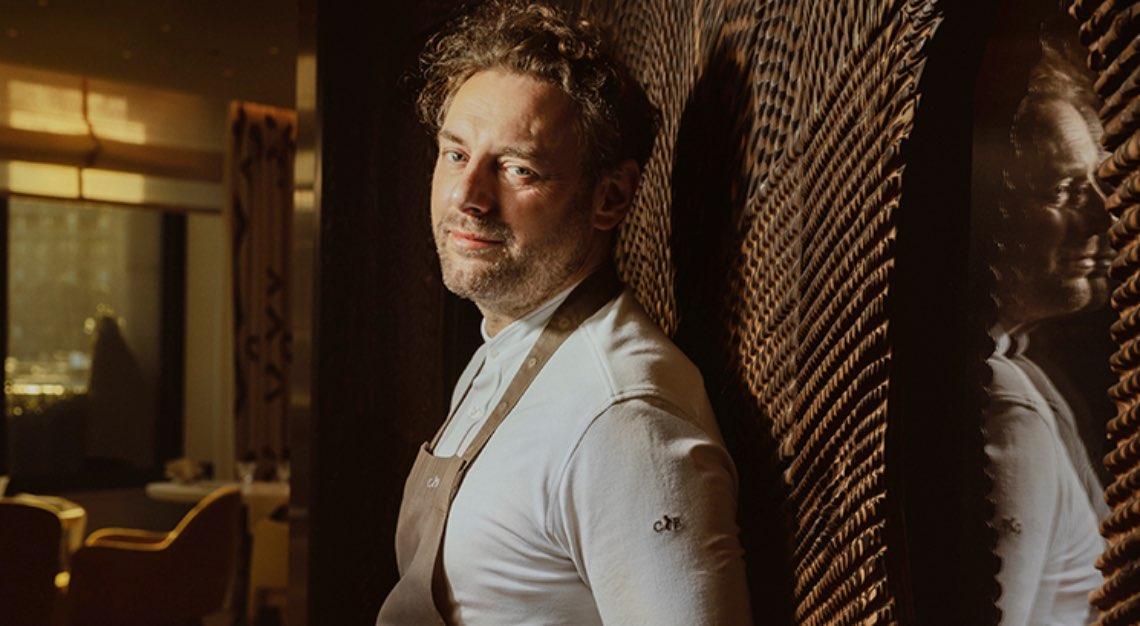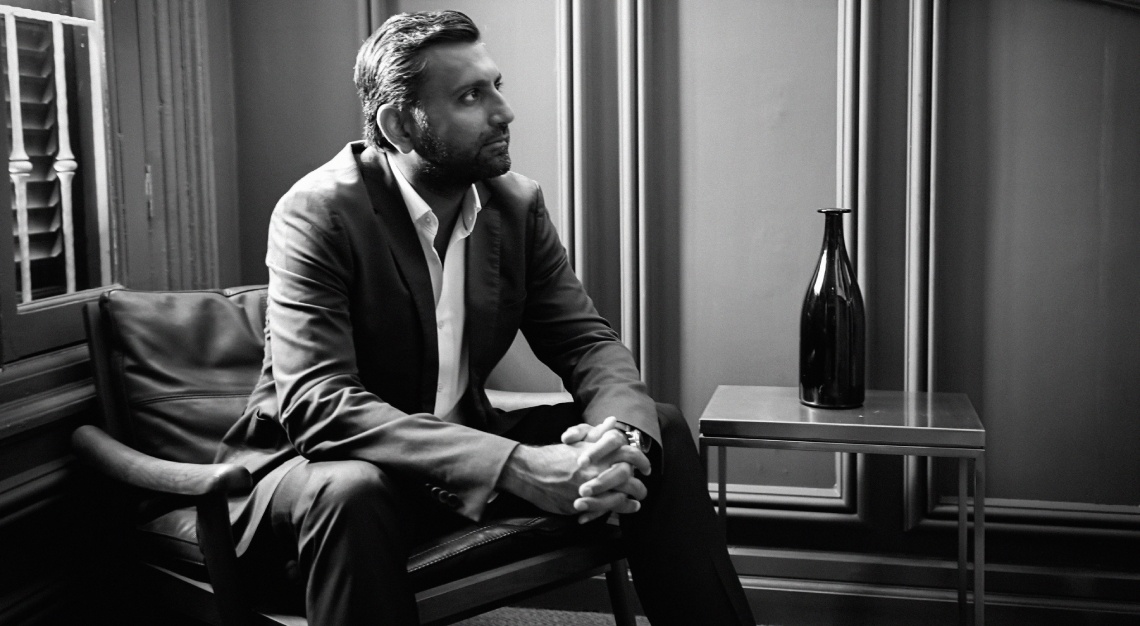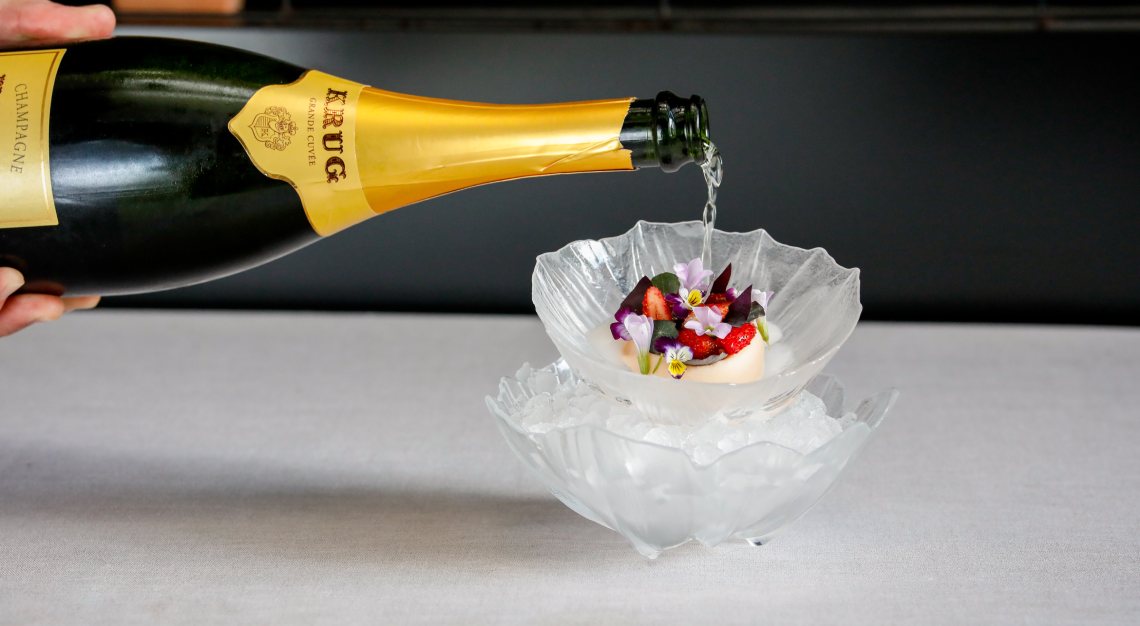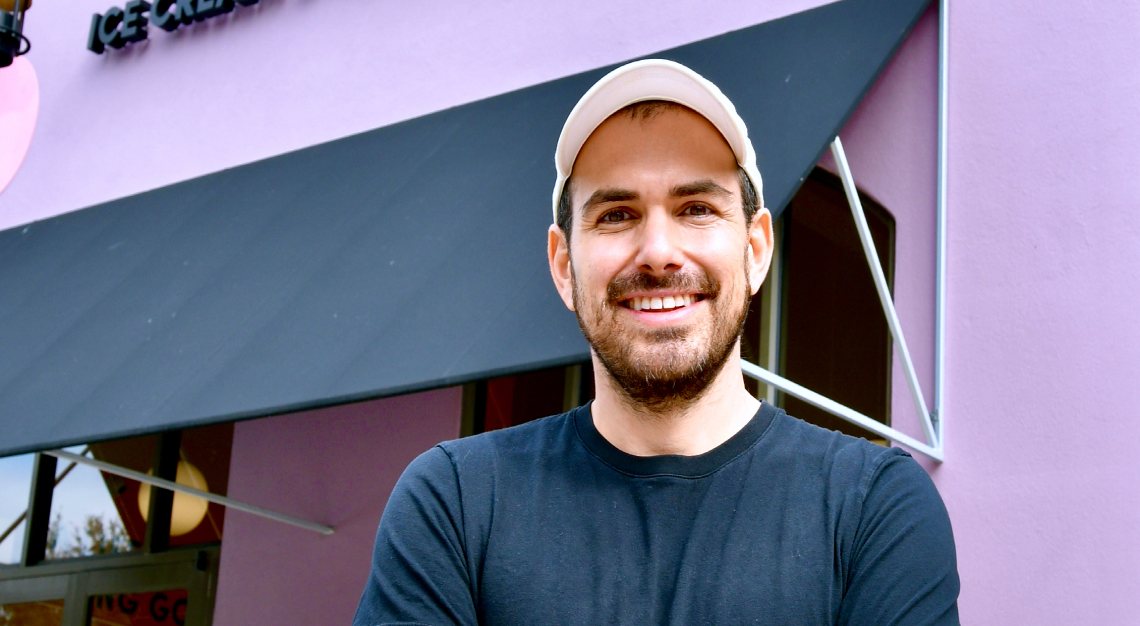In this edition of Dished Out, we talk to Su Kim Hock of Au Jardin, Penang, about his culinary journey and belief that the pursuit of greatness is a marathon, not a sprint
Embarking on a voyage through Su Kim Hock’s culinary journey is akin to traversing the intricacies of a Michelin-starred career, where the brilliance of fame and the grittiness of discipline lie side by side.
Behind the sparkling veneer of his achievements lies a remarkable origin story. Su’s first job began humbly at McDonald’s, worlds apart from haute cuisine’s glitz and glamour. His culinary odyssey truly unfolded when he found himself under the mentorship of a retired Michelin-starred chef in the United Kingdom. It was during these formative years that the foundations of his culinary identity were meticulously laid, deeply rooted in French cuisine but later blossoming into a tapestry that is woven with Malaysian influences and ingredients. This fusion of flavours and techniques would go on to distinguish his award-winning restaurant, Au Jardin.
While the accolades and Michelin stars may suggest an effortless ascent to culinary eminence, Su is quick to remind us that true mastery demands a mixture of experience, hard work, and an unwavering commitment to excellence. In an era where instant gratification beckons, he urges the next generation to understand that the pursuit of culinary greatness is a marathon, not a sprint.
On the shores of Desaru Coast just a short ferry ride away from Singapore, we found ourselves in the company of Su, poised to orchestrate a culinary symphony alongside other distinguished chefs at the Desaru Coast Gourmet Series 2023. Join us as we unravel his culinary voyage—a journey characterised by discipline, resilience, and an unrelenting quest for perfection, all of which he humbly embodies.
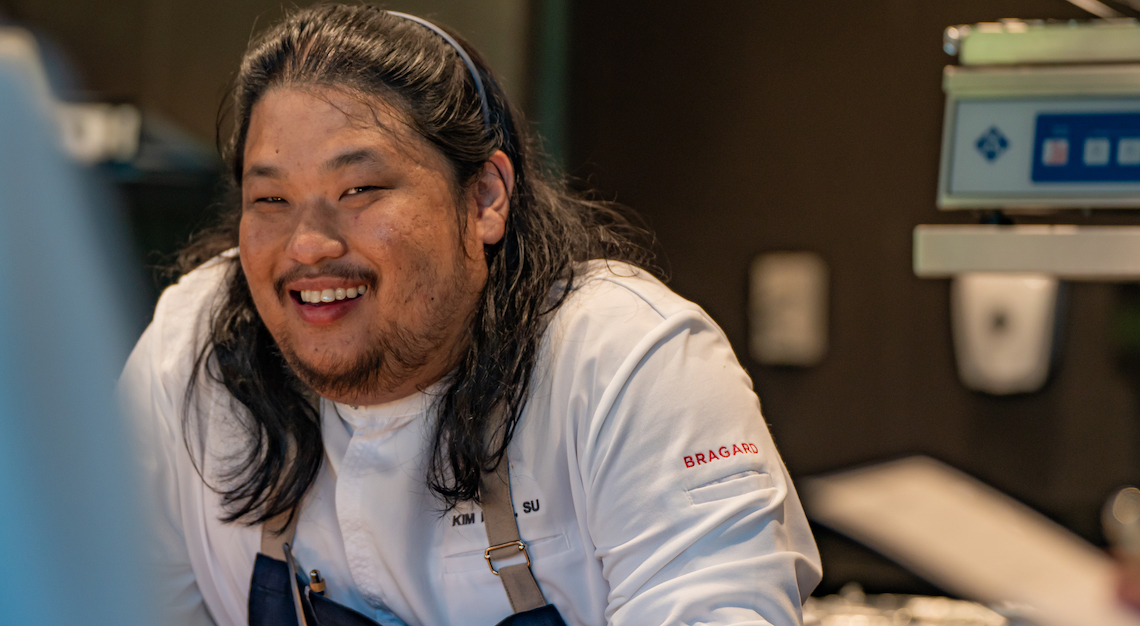
“To be one of the four recipients of the first Michelin Guide in Malaysia is brilliant. I don’t think we should stop anywhere now because it’s a constant growth of career.
It’s good to be me, but it’s also bad to be me. Not having a Michelin star means you can at least sleep better at night. When you have a star, you have the hunger to push the team forward, to strive for more.
When you’re just a normal restaurant, you don’t have that much social responsibility. But when you’re almost an icon, people look up to you. You are answerable to that. Now at Au Jardin, we address issues like sustainability. As much as it’s a cliché, with everyone doing sustainable cuisine, we have to kickstart it in Malaysia. We have to look at what’s going to happen in the next 10 or 20 years. We are responsible for the upbringing of the next generations of Malaysia. Whatever we do now is going to impact the whole industry.
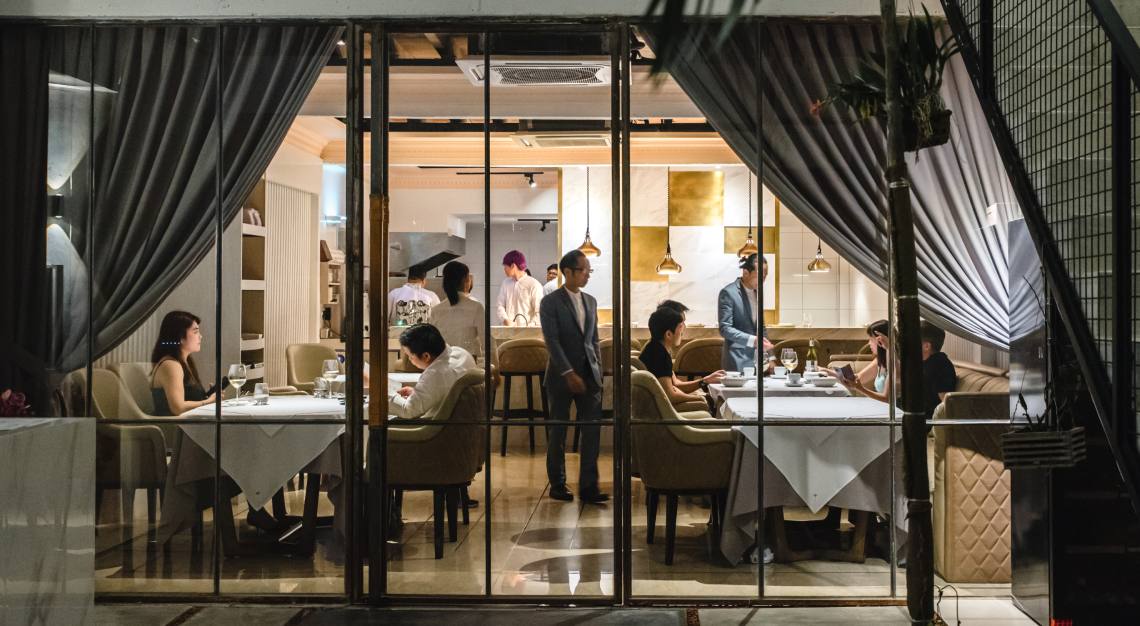
Every chef is different. I started my career in the United Kingdom. I wasn’t even a culinary arts graduate. I did hospitality management, but I just like to cook. My first job was at McDonalds, working in the kitchen. You have to start somewhere, right? For my first job in the United Kingdom, I landed myself in a bar where I worked for a retired Michelin-star chef. I’m lucky that throughout the whole journey, I’ve met the right person at every point in life.
When I started my career in the UK, I worked at a French restaurant. That got me fundamentally ready for the rest of it. If you go to Au Jardin, you can see that certain dishes still cling heavily to French cuisine. You have a lot of French sauces like jus and beurre blanc. We still use that very often. What’s also very interesting that you can only find in our restaurant is the usage of local ingredients. The usage of seafood is very true to ourselves. We change our menu every month, so we try to work with as many farmers as possible. This month, we have horseshoe crab, which can only be found in Malaysia and the southern part of Thailand. These are locally available for us. It crafts the whole experience slightly differently from other restaurants.
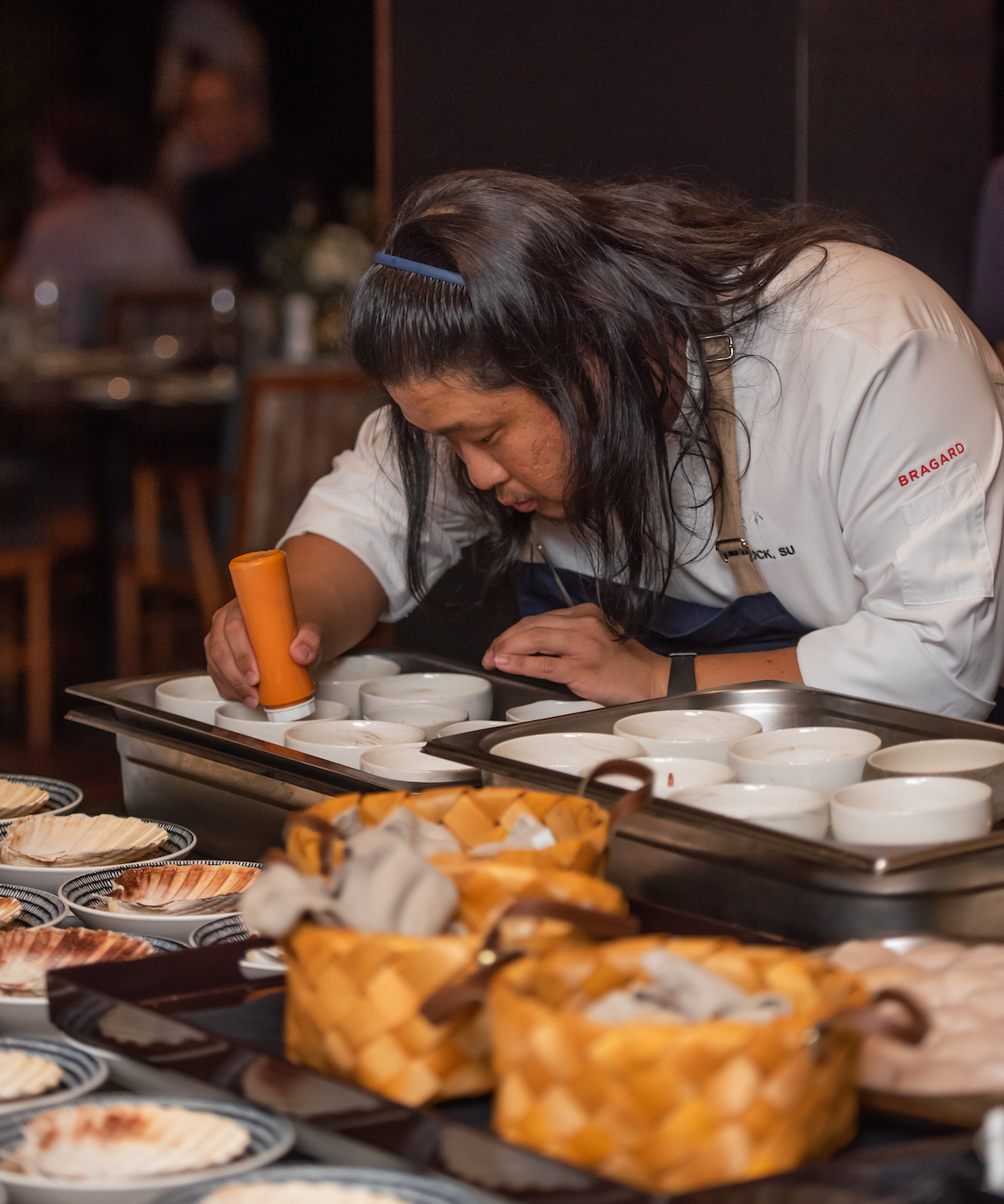
In this industry, you have to invest a lot of physical strength and time. You lose out on a lot of things like family gatherings. But this is part and parcel of it. I don’t think it should be a norm, but it’s inevitable. It’s just how restaurants work. Is there any way out? Yes, if you’re just a worker. But if you look at this as a career or if this is part of your business, you’ll think otherwise. I think Australia is doing a very good job in making sure that everyone’s paid fairly, even the chefs. When you’re working on Sundays and Saturdays, you’re getting paid double. But there are always two ways of looking at this. It’s good for the workers, but what’s going to happen to businesses?
I think people are rushing things now, especially younger chefs. They don’t have a lot of patience. As much as this is now a glamorous job to be in, it was not when we first started our career. Yes, we had icons like Gordon Ramsay, but we didn’t see that many Gordon Ramsays. Fast forward 15 years, you have so many celebrity chefs. A lot of young chefs idolise that. But the core of this business is still working hard in the early stage of your career. Self-development in the early stage of your career is important, which a lot of young chefs are missing out on now.
When I was training as a young chef, I spent five years at the bottom of the hierarchy. I was doing commis chef work for three, four or five years. To get promoted in a Michelin-star restaurant is difficult because everyone’s working equally as hard as you are. To shine is not as easy. Someone has to do the dirty jobs, and it’ll be us. You learn from those dirty jobs.
Now you see school graduates with the experience of holding the position of at least a senior sous chef or as a chef. I think they have missed out on that stage where working hard and putting in your hours is just as important. Things are more transparent now, especially with social media and cooking platforms that teach how to cook. It’s helpful and will definitely shorten the learning process. But I think there should be at least a number of years that you have to invest in to build your stamina and get your mentality right.”
Restaurant Au Jardin
125 Jalan Timah,
10150 Georgetown,
Penang, Malaysia
Tel: +60 12-428 9594
Main photo by Au Jardin
